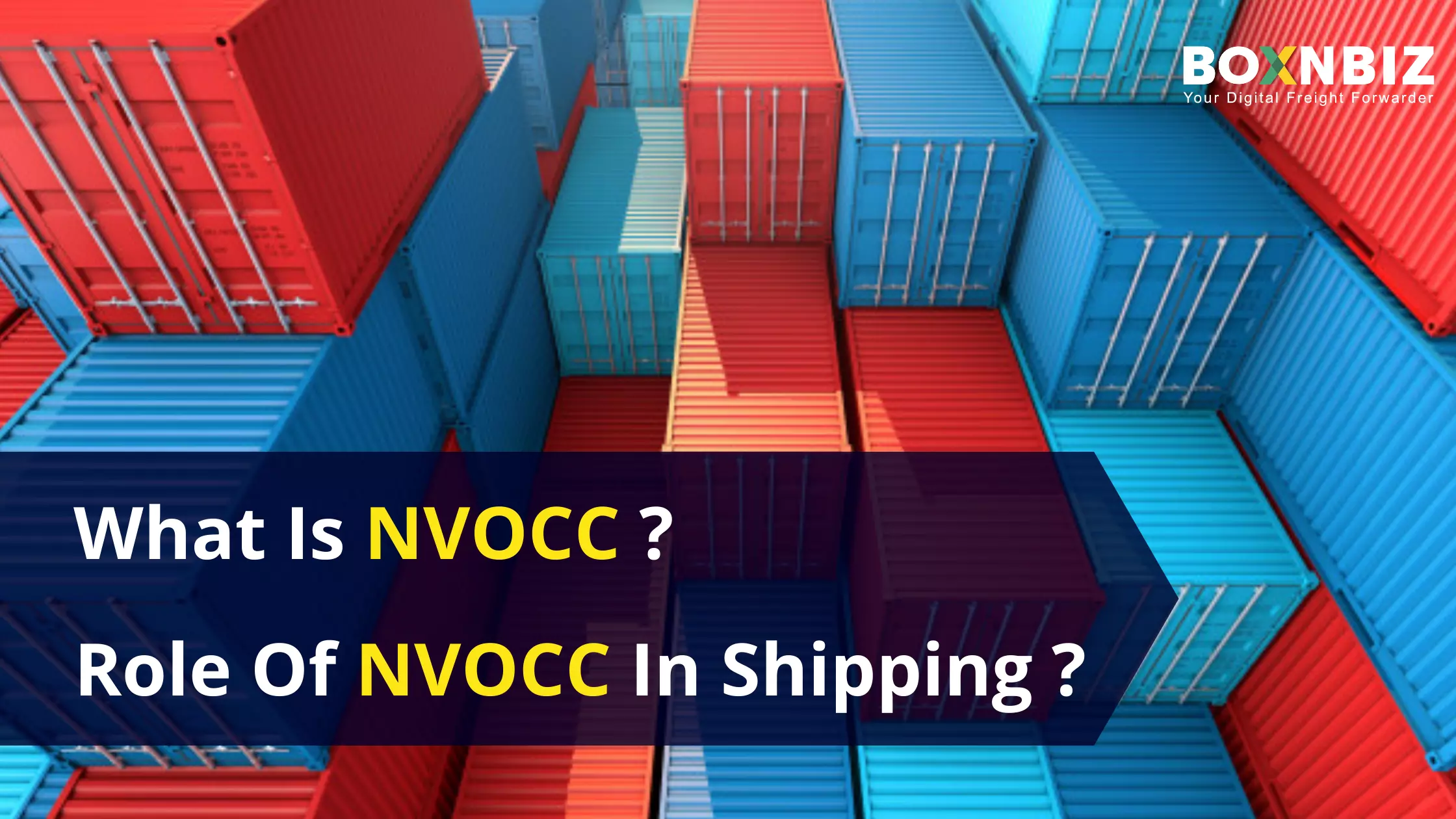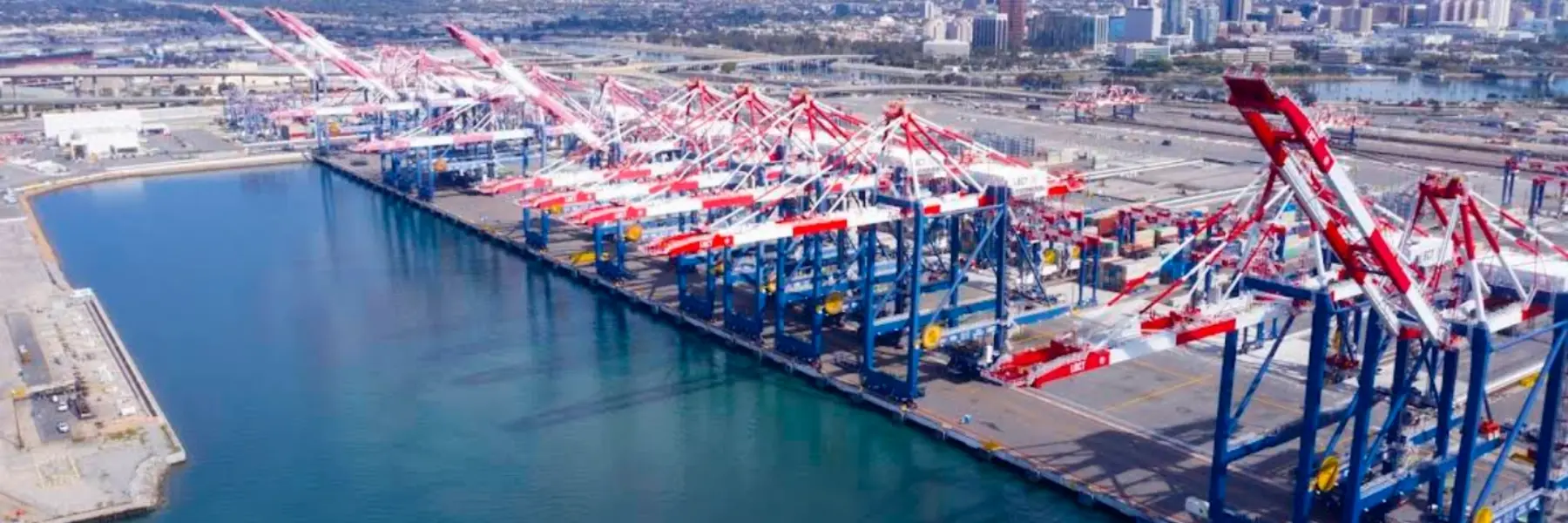In the intricate world of international shipping and logistics, NVOCC freight forwarders play a crucial role in facilitating global trade. This comprehensive guide explores the concept of NVOCC, its functions, benefits, and impact on the shipping industry.

Understanding NVOCC: Definition and Basics
NVOCC stands for Non-Vessel Operating Common Carrier. An NVOCC is a freight forwarder that operates as a carrier without owning the actual vessels. Key points include:
Acts as a carrier by issuing its own Bill of Lading
Assumes responsibility for the cargo from origin to destination
Contracts with vessel-operating carriers for actual transportation
Regulated by the Federal Maritime Commission (FMC) in the USA
The Evolution of NVOCC in Global Shipping
The concept of NVOCC has evolved significantly over the years:
Emerged in the 1960s as international trade expanded
Gained prominence with the growth of containerization
Adapted to changing regulations and market demands
Now an integral part of modern supply chain management
NVOCC vs. Traditional Freight Forwarders
While both NVOCCs and traditional freight forwarders facilitate shipping, there are key differences:
| NVOCC | Traditional Freight Forwarder |
|---|---|
| Issues own Bill of Lading | Uses carrier's Bill of Lading |
| Acts as a carrier | Acts as an agent for shippers |
| Assumes liability for cargo | Limited liability for cargo |
| Often offers consolidated shipping | May not offer consolidation services |
| Publishes tariffs | Does not publish tariffs |
Core Functions of NVOCC Freight Forwarders
Cargo Consolidation
NVOCCs excel at combining smaller shipments into full container loads, offering cost-effective solutions for shippers with less-than-container-load (LCL) cargo.
Rate Negotiation
Leveraging their volume and relationships, NVOCCs negotiate competitive rates with shipping lines, passing savings to clients.
Documentation and Customs Clearance
NVOCCs handle complex paperwork, including Bills of Lading, commercial invoices, and customs documentation, ensuring smooth international shipments.
End-to-End Logistics Management
Offering comprehensive services from pickup to delivery, including warehousing, distribution, and last-mile delivery.
Risk Management
Assuming liability for cargo, NVOCCs often provide insurance options and manage claims processes.
Benefits of Using NVOCC Services
Cost Savings
Economies of scale through cargo consolidation
Access to competitive rates negotiated with carriers
Reduced overhead for shippers
Flexibility and Convenience
Multiple carrier options under one contract
Tailored solutions for specific shipping needs
Single point of contact for entire shipping process
Expertise and Market Knowledge
In-depth understanding of global shipping routes and regulations
Up-to-date information on market trends and rates
Ability to navigate complex international trade requirements
Enhanced Service Offerings
Value-added services such as cargo tracking and reporting
Customized logistics solutions
Access to a global network of agents and partners
Challenges Faced by NVOCC Freight Forwarders
Regulatory Compliance
NVOCCs must navigate complex and ever-changing international shipping regulations, including:
FMC regulations in the USA
International Maritime Organization (IMO) rules
Country-specific import and export regulations
Market Volatility
The shipping industry is subject to frequent fluctuations in rates and capacity, requiring NVOCCs to adapt quickly to market changes.
Technology Integration
Keeping pace with rapidly evolving logistics technology, including:
Digital booking platforms
Real-time tracking systems
Blockchain and AI applications in shipping
Competition
NVOCCs face competition from both traditional freight forwarders and emerging digital logistics platforms.
NVOCC in the Digital Age
Adoption of Digital Technologies
NVOCCs are increasingly leveraging technology to enhance their services:
Online booking and quote systems
API integrations with carriers and customers
Advanced analytics for route optimization and pricing
E-commerce and Cross-Border Trade
The rise of e-commerce has created new opportunities and challenges for NVOCCs:
Handling increased volumes of small, individual shipments
Providing seamless integration with e-commerce platforms
Offering simplified customs clearance for B2C shipments
Blockchain in Shipping
Exploration of blockchain technology for enhanced transparency and efficiency:
Smart contracts for automated processes
Improved traceability of shipments
Reduced paperwork and administrative costs
Selecting the Right NVOCC Freight Forwarder
When choosing an NVOCC, consider the following factors:
Experience and Reputation
Years in business and industry reputation
Customer reviews and testimonials
Financial stability and insurance coverage
Service Network
Global coverage and strength in specific trade lanes
Partnerships with reliable agents and carriers
Presence in key markets relevant to your business
Technology and Innovation
Advanced tracking and visibility tools
User-friendly online platforms
Integration capabilities with your systems
Customer Service and Support
Responsiveness and communication
Dedicated account management
Problem-solving capabilities
Value-Added Services
Customs brokerage capabilities
Warehousing and distribution options
Specialized handling for unique cargo types
Case Studies: NVOCC Success Stories
Case Study 1: E-commerce Fulfillment
An NVOCC successfully implemented a tailored solution for a growing e-commerce company, managing their international shipments from multiple suppliers to various fulfillment centers, resulting in reduced transit times and costs.
Case Study 2: Automotive Industry Logistics
An NVOCC specializing in automotive logistics developed a just-in-time delivery system for a major car manufacturer, coordinating complex supply chains across multiple countries and optimizing inventory management.
Case Study 3: Perishable Goods Transportation
An NVOCC with expertise in cold chain logistics successfully managed the transportation of temperature-sensitive pharmaceuticals from Asia to Europe, ensuring product integrity and regulatory compliance throughout the journey.
Future Trends in NVOCC Operations
Sustainability Focus
Growing emphasis on green shipping practices and carbon footprint reduction:
Offering eco-friendly shipping options
Implementing sustainability metrics in operations
Partnering with carriers committed to reducing emissions
Data-Driven Decision Making
Increased use of big data and analytics in NVOCC operations:
Predictive analytics for demand forecasting
Dynamic pricing models
Risk assessment and mitigation strategies
Automation and AI
Integration of artificial intelligence and automation in logistics processes:
Chatbots for customer service
Automated booking and documentation processes
AI-powered route optimization and capacity planning
Regulatory Landscape for NVOCCs
FMC Regulations in the USA
Key regulatory requirements for NVOCCs operating in the United States:
Licensing and registration with the FMC
Maintenance of a tariff system
Compliance with financial responsibility requirements
International Regulations
Compliance with various international shipping regulations:
SOLAS container weight verification requirements
IMO dangerous goods regulations
Country-specific customs and trade regulations
Conclusion: The Vital Role of NVOCC Freight Forwarders

NVOCC freight forwarders play an indispensable role in the global shipping industry, offering a unique blend of carrier services and freight forwarding expertise. As international trade continues to evolve, NVOCCs are well-positioned to adapt to changing market dynamics, leveraging technology and their extensive networks to provide value-added services to shippers worldwide.
The future of NVOCC operations is likely to be shaped by digital transformation, sustainability initiatives, and the ongoing need for flexible, efficient logistics solutions. By staying ahead of industry trends and continuously innovating their service offerings, NVOCC freight forwarders will continue to be crucial partners in facilitating global trade and optimizing supply chains for businesses of all sizes.
For shippers navigating the complexities of international logistics, partnering with a reputable NVOCC can provide the expertise, flexibility, and cost-effectiveness needed to succeed in today's competitive global marketplace. As the shipping industry continues to evolve, the role of NVOCCs in streamlining global trade flows and enhancing supply chain efficiency is set to become even more significant.
 Easy Shipping From Global, Save Cost
Easy Shipping From Global, Save Cost













